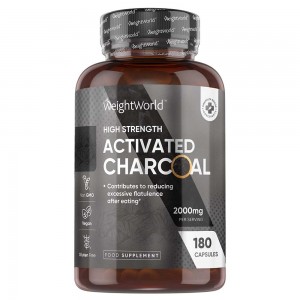What Is The Difference between Charcoal And Activated Charcoal?
What is activated charcoal? Is it any different from charcoal? We often assume that charcoal is simply charcoal, but there is a big difference between charcoal and activated charcoal. While both are extracted from carbon, activated charcoal is relatively much more porous and has a larger surface area. This allows it to filter more impurities, making it a wiser choice in most cleansing applications.
Being versatile, charcoal is commonly used in homes for treating water, cooking barbecues, creating artwork, and it is also used in vacuum cleaners. Activated charcoal, also known as activated carbon, includes more oxygen for increased porosity. This adds to its surface area and makes it highly adsorbent. This impressive quality makes activated carbon more potent and effective as compared to charcoal, when it comes to removing impurities.
The Benefits Of Using Activated Charcoal Instead of Charcoal
Due to its powerful cleansing properties, activated charcoal is approved for use as a treatment in numerous health care applications. While there is no substantial research to support the benefits of activated charcoal, most over-the-counter cleansing products include activated charcoal as a key ingredient to boost their benefits and efficacy.
A few ways where using activated charcoal can be beneficial include:
Kidney Disease

Activated charcoal supplements may be able to assist normal kidney function by filtering impurities and undigested heavy metals. A research study conducted on rats with induced kidney disease showed that the animals exhibited a significant reduction in intestinal damage when they were given 4 grams of activated charcoal for a few days. (1)
Intestinal Gas And Bloating

Being porous, activated charcoal is considered to have the ability to neutralise all the liquids and gases that get trapped in the intestine. In 2012, a research study was conducted on a small group of people suffering from a medical history of intestinal gas. When they were administered multiple doses of activated charcoal for 2 days, their ultrasound examinations showed a significant reduction in their symptoms. (2) Activated charcoal can be taken in the form of capsules, tablets or powder to ease stomach discomfort and bloating.
Diarrhoea

Being highly absorbent, several research studies have been conducted on the use of activated charcoal for treating diarrhoea. In fact, in a recent study, research suggests that activated charcoal might be able to prevent the absorption of diarrhoea-causing drugs and bacteria by trapping them in its porous surface. (3)
Oral Health

Most teeth whitening products on the market are using activated charcoal due to its brightening benefits. In fact, even dental care products contain activated charcoal as it is believed to be antifungal, antiviral, and detoxifying.
Skin Care
From clarifying soaps and pore treatments to exfoliating scrubs and brightening body products, activated charcoal is ruling the market. Researchers have also reported that it can help draw out all the dust, dirt, bacteria and chemicals from the skin, leaving it cleaner and better looking. Ideally, there are no known or reported activated charcoal side effects on skin.
Where To Buy Activated Charcoal?
This depends on the type you’re looking for and its purpose. If you are looking for 100% pure nature made activated charcoal that is ideal for coping with bloating and flatulence, then you can count on GMP-certified supplements online.
Just make sure that it offers at least 2000mg per daily serving so you can make the most of it. Prefer food-grade activated charcoal capsules as they will dissolve quickly in your stomach for fast action and quick relief. Finally, check with your doctor and choose a product that is sustainably sourced from coconuts and contains no artificial colours, flavours or preservatives.




